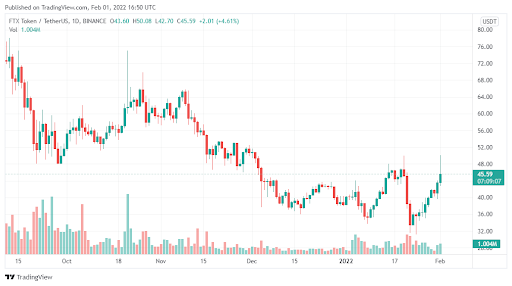Despite the bearish sentiment in crypto over the last few weeks, there have been a few important moves behind the scenes. The FTX exchange is now a $32 billion company. This is after a new round of funding that puts the valuation of the exchange higher than ever before. Here are some highlights:
-
FTX confirmed that it raised around $400 million in series C funding on Monday.
-
The platform is associated with Sam Bankman-Fried, one of the more notable names in crypto
-
As the crypto winter starts to abate, exchanges like FTX are expected to grow even bigger in the future.
 Data Source: Tradingview.com
Data Source: Tradingview.com
How does FTX Compare with other exchanges?
Well, even with its $32 billion valuations, FTX is still not the biggest exchange in the world, at least not based on market cap. Others like Coinbase and Binance dominate the global crypto market.
But one thing FTX has brought to crypto is outstanding trading technology. In fact, the platform is more suited to day traders with large trade volumes. There are also so many crypto-related derivative products available on FTX. As crypto trading becomes more mainstream in the long term, FTX will be a big part of that growth.
Can you Invest in FTX?
Yes, even though FTX is raising money on the side to fund its expansion, you can get in by purchasing the FTX token. It is the main native token for the FTX ecosystem. At the time of writing, the token was selling for $43.03. It also has a market cap of around $5 billion.
Over the last 24 hours, the token has seen a sharp increase in trading volume. This could suggest that investors have been digesting the $32 billion valuation news and taking action. Either way, FTX is a decent long-term investment for any investor out there.
This article first appeared at CoinJournal: Home